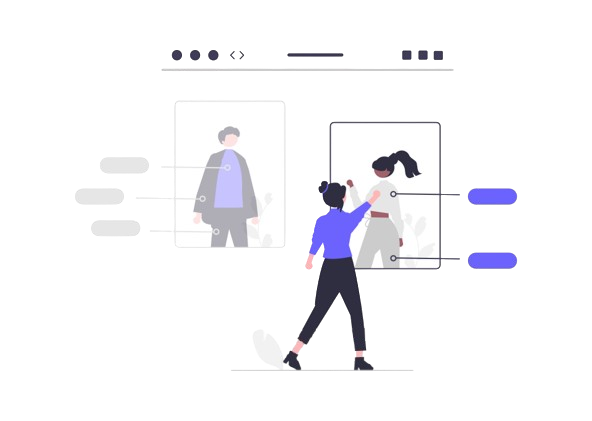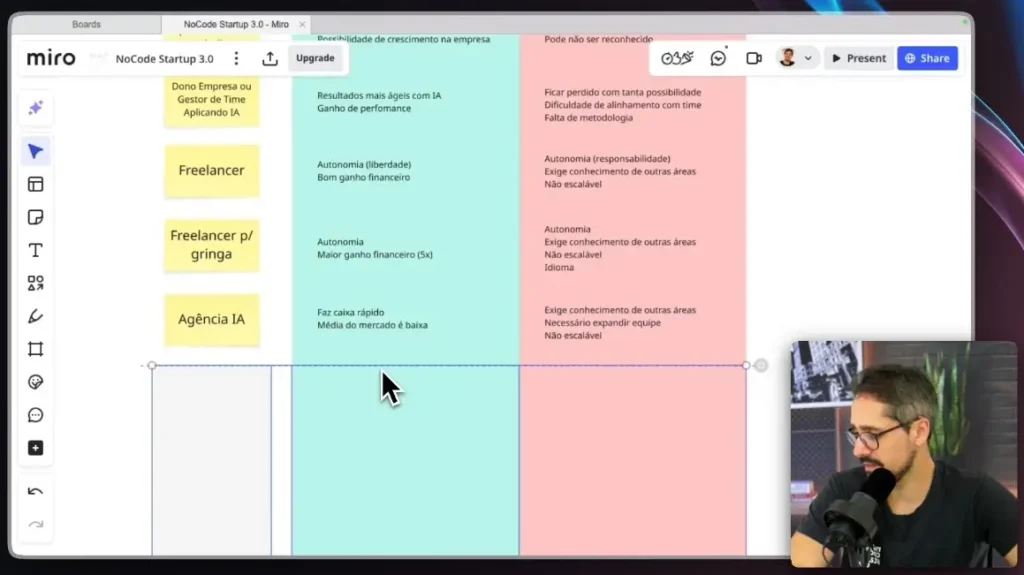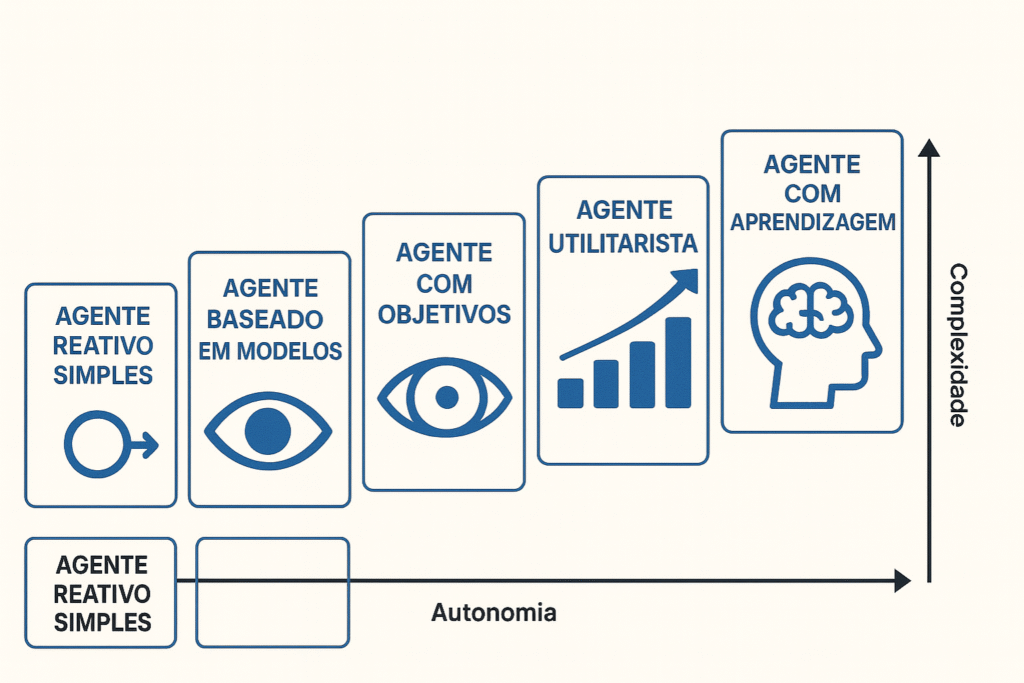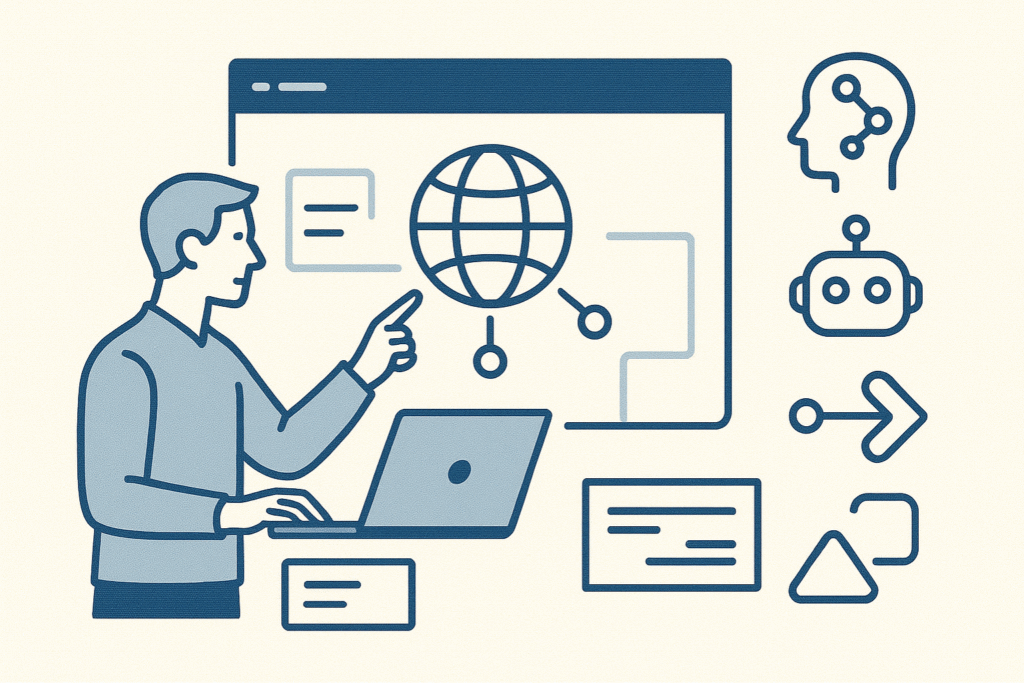Understanding the impact of AI for customer service
To start using AI for customer service, it is important to identify the areas that most need automation, so that resources can be directed to the most effective solutions. Analyzing these needs helps to prioritize efforts and resources. In addition, developers use platforms such as Bubble can be used to develop user-friendly interfaces, ensuring that systems are accessible and intuitive for both users and internal staff. In this way, companies can benefit from a powerful tool that enhances interaction between brands and customers.
Another essential factor is the proper training of algorithms, which requires quality data. By using accurate information, systems become more reliable and able to respond to real situations, continually improving the customer experience. Data quality directly reflects on the performance of systems, making interaction more assertive. To ensure effectiveness, it is essential to regularly update the data used to train AI, so that the tool remains relevant and accurate.
Contents
Key benefits for customer service

Using AI for customer service offers numerous benefits, such as reducing operational costs and increasing customer satisfaction. One of the main benefits is 24/7 availability, allowing consumers to get answers even outside of business hours. By using AI for customer service, companies can ensure an immediate response at any time, which provides greater convenience for customers.
Additionally, AI-based solutions can easily scale to handle large volumes of concurrent requests. This means that as demand increases, AI can respond quickly and efficiently without compromising quality. Implementing AI also reduces the workload for human teams, allowing them to focus on more complex tasks while AI solves the simpler, more repetitive issues. This results in higher overall productivity.
Platforms like Flutterflow help develop systems that efficiently integrate AI, creating solutions tailored to the needs of companies. This makes it possible to improve customer retention and strengthen relationships with the public. Personalization of interactions is also improved, since AI solutions can identify and act according to individual preferences, offering more accurate and relevant responses, which positively impacts the customer experience.
Implementing AI for efficient service
To implement AI in customer service, companies must follow a structured plan that covers all stages of the project. Initially, managers must define the objectives and map the areas that the technology will benefit. Using tools such as web can simplify the development of user-friendly and integrated interfaces, facilitating implementation. In addition, the platform allows you to create visual solutions that meet user needs without the need for in-depth technical knowledge. The ease of use and flexibility of these platforms make integration more fluid.
A crucial point is integration with existing systems. Make sure that the chosen solution is compatible with current softwares, minimizing the need for structural changes. To ensure that the process is agile, it is essential to carry out an in-depth analysis of existing systems and how AI can be incorporated without major disruptions. Adopting agile practices also speeds up the development process, ensuring that the project progresses efficiently and with the necessary quality. It is also important to consider the resources of each stage and ensure that all needs are met within the stipulated deadlines.
Another important aspect is the constant maintenance and updating of systems. AI, being a dynamic technology, requires frequent monitoring and adjustments to ensure that it continues to meet expectations and keep up with market trends. To achieve this, it is necessary to invest in ongoing training and perform regular system reviews. Active maintenance ensures that AI remains efficient and effective in its responses, adapting to changes and offering solutions that are always up to date.
Success stories in different sectors

Companies across a range of sectors have achieved remarkable results by adopting AI for customer service. In retail, for example, brands are using chatbots to assist customers during purchases, offering personalized recommendations and optimizing the consumer experience. In healthcare, AI-based systems help patients by providing preliminary medical information and scheduling appointments automatically. This makes customer service faster and more efficient, saving time and resources for both professionals and patients.
In education, AI-powered tools personalize learning by creating adaptive experiences that meet students’ individual needs. Using platforms like Xano Course has helped structure these systems, enabling more efficient data management and content personalization. The use of AI in educational platforms contributes to more personalized learning, focused on the pace and difficulties of each student, improving results.
Another example is the financial sector, where AI improves security and agility in services related to transactions and queries. This technology not only reduces waiting times, but also increases the accuracy of the solutions offered. As a result, customers feel safer and have their needs met quickly and efficiently, which strengthens trust in companies in the sector.
The future of AI for customer service

With constant advances in technology, the use of AI for customer service is set to expand even further, incorporating new functionalities and increasing automation in business processes. The evolution of language models and the emergence of new tools will bring increasingly sophisticated solutions, which will allow for even more personalized interactions. Companies that adapt quickly to these changes will have a significant competitive advantage in the market.
It is essential that companies remain alert to these innovations and adapt to remain competitive. The evolution of AI for customer service will bring new opportunities to offer faster, more efficient and customized solutions. Furthermore, investing in team training and education ensures that systems are used to their full potential. Qualified professionals will be essential to maximize the benefits of AI and ensure that the technology aligns with the company's goals.
By combining creativity and efficiency, AI will further transform relationships between consumers and organizations, setting a new standard for quality in customer service. As a result, companies will not only achieve better operational results, but also a more satisfying and impactful customer experience.
Connect with experts
If you want to delve deeper into the use of AI for customer service and discover how to implement innovative solutions, don't waste time. Visit the YouTube channel and website NoCode StartUp to explore exclusive content and learn from experts. Turn your ideas into reality with the best tools and knowledge on the market!


























